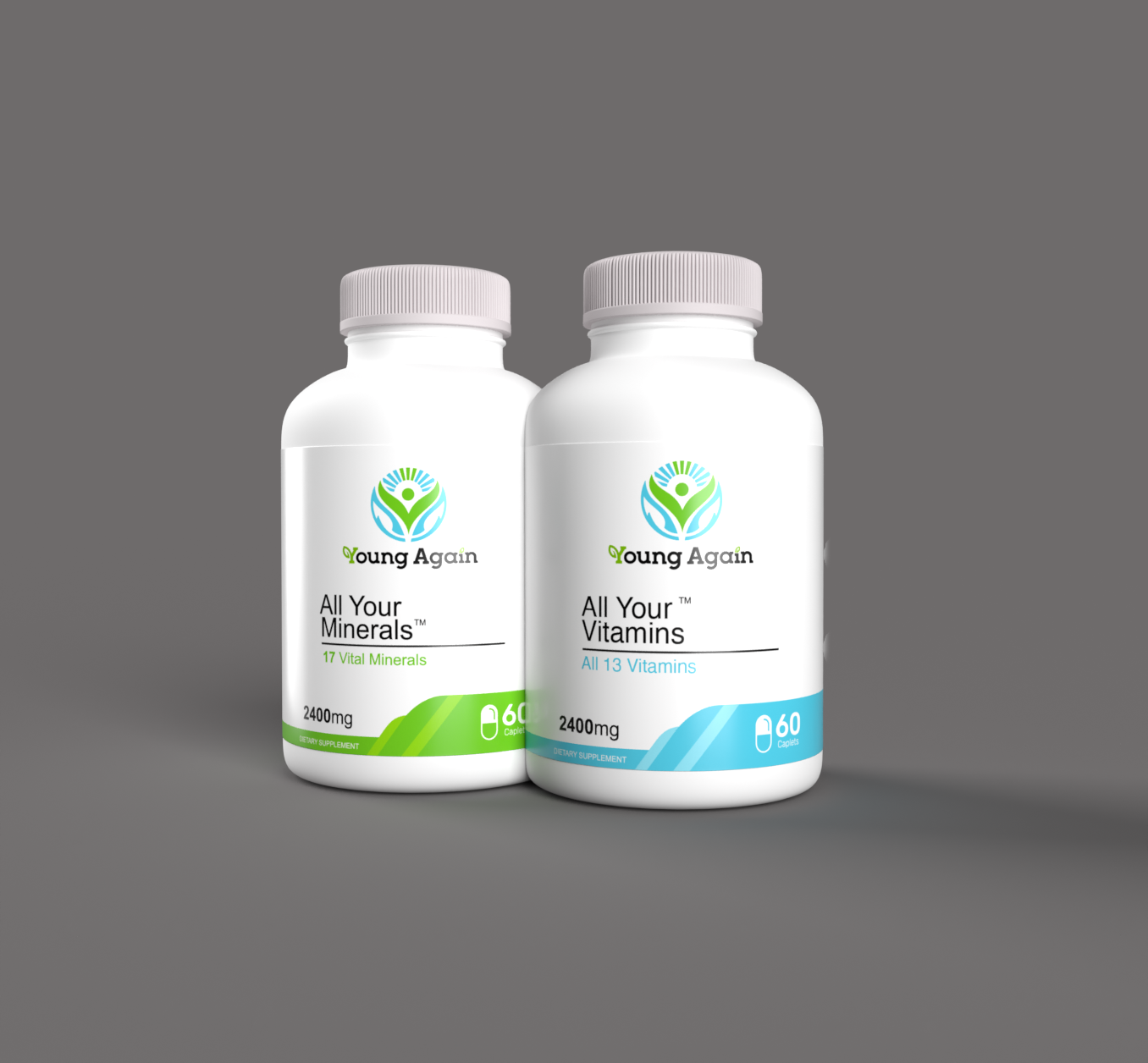
How to Combat Inflammation and Slow Down the Aging Process
Share
If you’re looking for ways to feel younger, live longer, and keep your body in top shape as you age, addressing inflammation is one of the best places to start. While inflammation is often associated with swollen joints or visible injuries, there’s another kind—chronic inflammation—that quietly impacts your body over time. Scientists now refer to this process as “inflammaging” because of its profound connection to aging and age-related diseases.
The good news? You can combat chronic inflammation naturally through simple lifestyle changes and targeted nutrition. Let’s explore the connection between inflammation and aging—and what you can do to stay vibrant and healthy for years to come.
What is Inflammation, and Why Does It Matter?
Inflammation is your body’s natural defense mechanism. When you scrape your knee or catch a cold, your immune system triggers an inflammatory response to heal the injury or fight off the infection. This short-term inflammation is helpful—it’s your body’s way of protecting itself.
But chronic inflammation is a different story. Instead of turning off once the “threat” is gone, your immune system remains active, creating low-level inflammation throughout your body. This ongoing inflammation can slowly damage tissues, organs, and cells, contributing to:
- Premature aging
- Heart disease
- Type 2 diabetes
- Arthritis
- Cognitive decline (including Alzheimer’s)
- Certain cancers
In essence, chronic inflammation accelerates the aging process and increases the risk of age-related conditions. Think of it as a fire that keeps smoldering in the background, silently harming your health over time.
What Causes Chronic Inflammation?
Understanding the root causes of chronic inflammation can empower you to make changes that reduce its impact. Some of the biggest culprits include:
- Poor Diet: Diets high in processed foods, sugar, and unhealthy fats can trigger inflammation.
- Sedentary Lifestyle: Lack of movement reduces circulation and impairs your body’s ability to fight inflammation.
- Chronic Stress: Persistent stress activates inflammatory pathways in the body.
- Environmental Toxins: Pollution, chemicals, and pesticides can contribute to inflammation.
- Poor Sleep: Quality sleep is crucial for reducing inflammation and repairing the body.
How Chronic Inflammation Accelerates Aging
Chronic inflammation wears down your body over time, speeding up a process called cellular aging. As inflammation damages cells and tissues, your body’s ability to repair itself declines. Here are a few ways inflammation directly impacts the aging process:
- Collagen Breakdown: Chronic inflammation can break down collagen, the protein that keeps your skin firm and elastic. This accelerates the appearance of wrinkles and sagging skin.
- Muscle and Joint Degeneration: Inflammation damages joint tissues, contributing to stiffness, pain, and reduced mobility.
- Brain Aging: Prolonged inflammation can impair brain function and increase the risk of cognitive decline.
- Immune System Decline: Chronic inflammation weakens your immune system, making you more vulnerable to illness as you age.
The result? You feel older, you look older, and your body functions less efficiently.
5 Natural Ways to Combat Chronic Inflammation
The best part about addressing inflammation is that it doesn’t require extreme measures. Small, intentional changes to your daily habits can have a profound impact on reducing inflammation and slowing the aging process.
1. Prioritize an Anti-Inflammatory Diet
The foods you eat play a major role in controlling inflammation. Focus on:
- Healthy Fats: Omega-3 fatty acids found in salmon, walnuts, flaxseeds, and olive oil are natural anti-inflammatories.
- Colorful Vegetables and Fruits: Rich in antioxidants, these foods fight inflammation at the cellular level. Think berries, leafy greens, tomatoes, and peppers.
- Spices: Turmeric (curcumin), ginger, and garlic are powerful anti-inflammatory agents.
- Whole Foods: Choose minimally processed foods like whole grains, legumes, nuts, and seeds.
Avoid excessive sugar, refined carbohydrates, processed meats, and fried foods, as these can trigger inflammation.
2. Move Your Body Regularly
Physical activity is one of the best ways to lower inflammation naturally. Regular movement boosts circulation, improves immune function, and helps your body regulate inflammatory responses.
- Try low-impact activities like walking, swimming, or gentle yoga.
- Aim for at least 30 minutes of movement most days of the week.
- Incorporate stretches and mobility exercises to keep your joints and muscles healthy.
Even short bursts of activity can have a big impact, so start where you’re comfortable and build from there.
3. Manage Stress Mindfully
Chronic stress is a major driver of inflammation. When you’re under stress, your body releases cortisol, a hormone that, over time, can contribute to inflammation and immune system dysfunction.
To combat stress:
- Practice deep breathing or meditation for just 5-10 minutes daily.
- Try gentle somatic exercises like Feldenkrais or TRE to release stored tension.
- Spend time in nature or engage in hobbies that bring you joy.
- Prioritize social connections—they’re proven to reduce stress hormones.
4. Focus on Restorative Sleep
Your body repairs itself during sleep, so quality rest is essential for controlling inflammation. Poor sleep can increase inflammatory markers in your blood and accelerate aging.
- Aim for 7-9 hours of quality sleep per night.
- Develop a calming bedtime routine (e.g., reading, light stretching, or meditation).
- Keep your sleep environment cool, dark, and quiet.
5. Use Natural Supplements to Support Your Body
Certain natural supplements can help reduce inflammation and support your body’s healing processes:
- Turmeric (Curcumin): A potent anti-inflammatory with antioxidant benefits.
- Omega-3 Fatty Acids: Essential for reducing inflammation and supporting heart health.
- Vitamin D: Helps regulate immune function and reduces inflammation.
- Magnesium: A key mineral for relaxing muscles and calming the nervous system.
Always consult your healthcare provider before introducing new supplements to ensure they’re right for you.
Conclusion: Aging Well Starts with Fighting Inflammation
Chronic inflammation doesn’t have to be an inevitable part of aging. By prioritizing an anti-inflammatory lifestyle—through nourishing foods, gentle movement, stress management, and quality sleep—you can slow down the aging process and feel more vibrant, energized, and comfortable in your body.
Remember, small, consistent changes add up over time. Start with one or two habits, and watch how your body responds. After all, aging well isn’t just about adding years to your life—it’s about adding life to your years.

